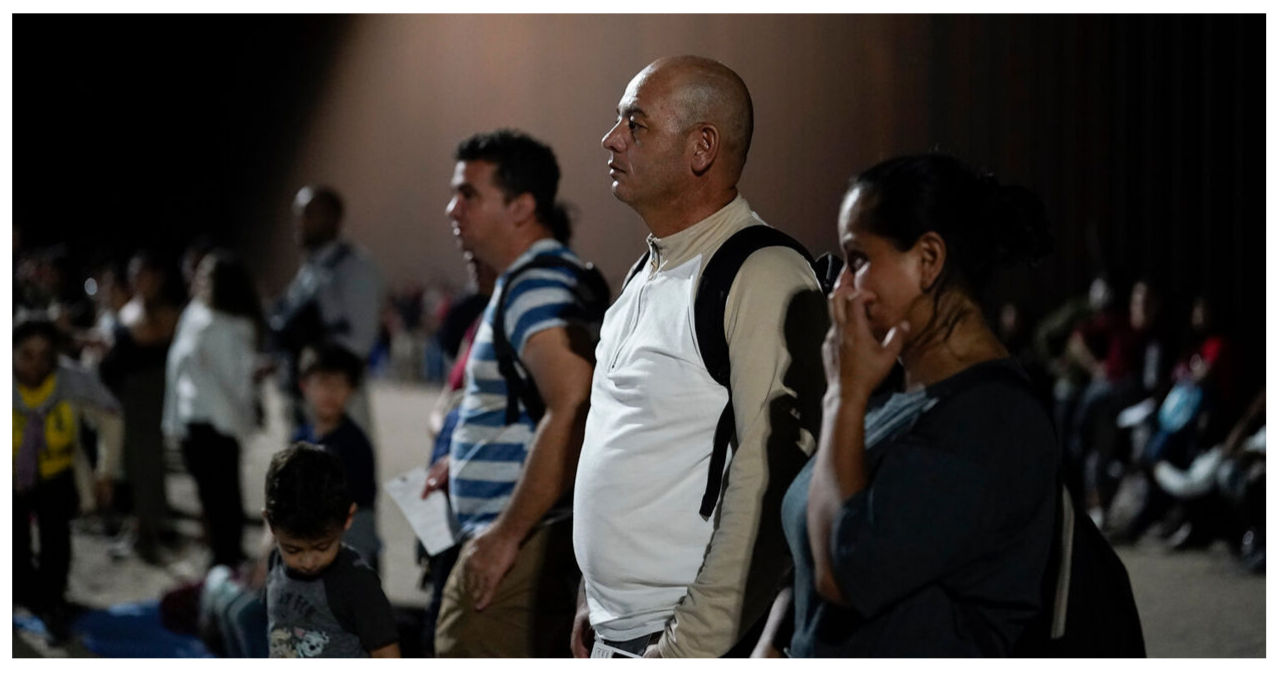Jamiesfeast – The Arizona state Senate committee gave its approval on Wednesday to a proposal that would grant Arizona police the authority to arrest individuals who entered the country illegally and allow state judges to deport them.
Despite the testimony highlighting the potential conflict with U.S. Supreme Court precedent, the vote proceeded. The precedent states that the enforcement of immigration laws falls under the jurisdiction of the federal government. This ruling had previously invalidated significant aspects of Arizona’s Senate Bill 1070 over ten years ago.
All Democrats on the panel opposed Senate Bill 1231, while Republicans unanimously approved the measure.
According to Sen. Janae Shamp, R-Surprise, the sponsor of the bill, the main objective of her measure is not focused on immigration but rather on safeguarding Arizona from what she describes as “an invasion.”
According to Shamp, this bill is distinct from SB1070 because it does not address immigration. Instead, it focuses on the requirement of entering the state through a lawful port of entry.
The bill takes inspiration from a Texas law passed in 2017, known as Senate Bill 4. This law has already resulted in a lawsuit filed by the U.S. Justice Department against the state. In their legal action, the Justice Department specifically referenced the Supreme Court’s ruling on the federal government’s challenge to SB1070.
In a news release from the Justice Department in January, it was stated that the Supreme Court, in the case of ‘Arizona v. United States,’ had previously affirmed that decisions regarding the removal of noncitizens from the United States have an impact on foreign relations and should be made with a unified approach. The release also mentioned that SB 4 hinders the federal government’s enforcement of entry and removal provisions of federal law and interferes with its management of foreign relations.
Shamp criticized the federal government, attributing the recent surge of immigrants crossing the border directly to its inaction on immigration.
Shamp expressed his concerns to the Senate Committee on Military Affairs and Public Safety regarding the current state of illegal activity at the border. He attributed this increase in illegal activity, such as human and drug smuggling, to the Biden administration’s failure to secure the border. Shamp described the situation as an invasion that we are currently facing.
“Our law enforcement is struggling to cope with the chaos caused by Biden’s open border policies,” she asserted. “They lack the necessary resources and support to effectively combat the rampant criminal activity taking place. As a result, our communities are at risk.”
Shamp’s proposal grants local police and sheriffs the authority to apprehend individuals who have entered the country anywhere other than through a port of entry. This encompasses individuals who have not been granted asylum or any other legal permission to remain in the country. Furthermore, the proposal empowers, and in certain instances mandates, local judges to issue orders for the return of these arrested individuals to Mexico, regardless of their nationality.
According to the American Civil Liberties Union of Arizona, Marilyn Rodriguez, a lobbyist, warns that if this measure is put into effect, it will result in a significant increase in racial profiling.
Regrettably, Arizona has ventured down this troubling path in the past,” she conveyed to the panel.
According to Rodriguez, in the past, individuals in Arizona have faced discrimination based on their skin color or language, resulting in unjust police stops. Additionally, family members have been arrested by local police simply because they couldn’t provide proof of their immigration status. This has created a sense of fear among mixed-status families, causing them to hesitate to contact the police when they become victims of crime, out of concern for being detained or deported. Rodriguez emphasizes the lasting impact of this division and anger, urging us not to repeat the mistakes of the past.
According to Sen. Eva Burch, D-Mesa, she acknowledges the existence of significant challenges at Arizona’s southern border and believes that the state Legislature could potentially play a role in addressing these issues.
According to Burch, it is crucial to ensure that we handle this situation correctly. To achieve this, there needs to be a strong bipartisan effort involving various stakeholders such as border personnel, law enforcement, civil rights advocates, and individuals in the humanitarian field. Unfortunately, the current bill does not reflect this inclusive approach.
Republicans on the panel lauded Shamp’s proposal, arguing that given the federal government’s failure to address illegal immigration, it is the state’s responsibility to take action.
“It is our responsibility, as the state, to protect ourselves if the federal government cannot,” stated Senator Wendy Rogers of Flagstaff. “It is about time that we step up and fulfill that duty.”
Rogers also challenged the notion that the law’s enactment would lead to racial profiling.
The full Senate will now consider the measure, and if it passes both the Senate and the House, it will be up to Democratic Governor Katie Hobbs to decide whether to sign or veto the legislation. Given her background as a former state senator, it is unlikely that Hobbs will approve the measure.

